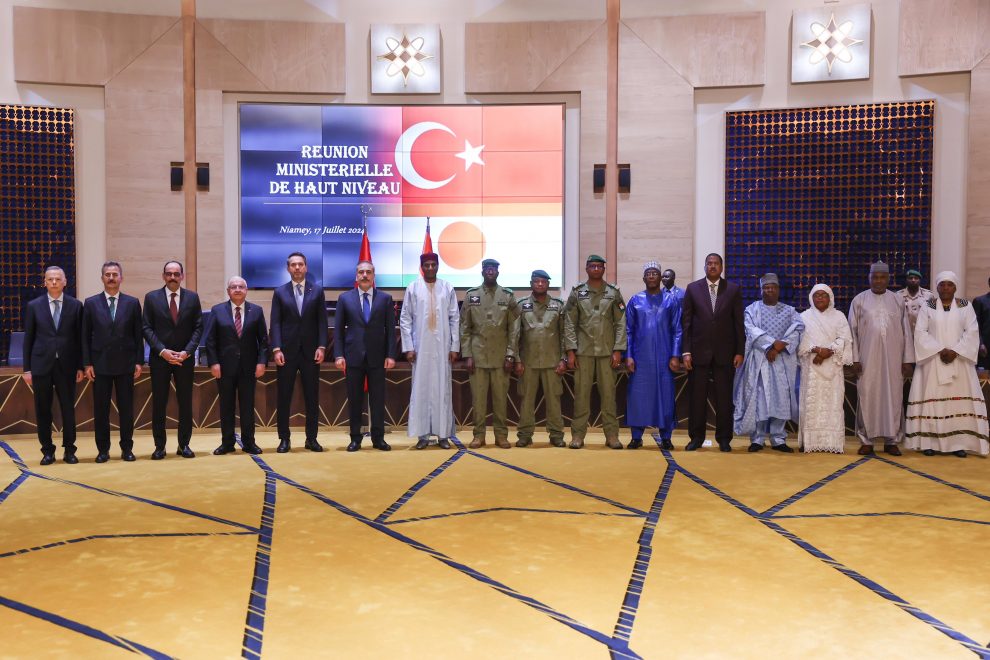Diversified cooperation
This visit of Turkish ministers to Niamey comes two months after the Prime Minister of Niger, Ali Mahaman Lamine Zeine, met with Turkish President Tayyip Erdogan in Ankara. Mr. Fidan’s delegation also met with the President of the Niger Transition, General Abdourahmane Tiani.
But beyond the military, the two countries want to strengthen their cooperation in the sectors of energy, mining, education among others.
But behind these high-level meetings, a strategic convergence between the two countries is emerging.
Alternative for one, strategic presence for the other
Türkiye is joining a new configuration of partners of the Sahel countries. Indeed, after Mali and Burkina Faso, Niger has broken off its cooperation, deemed fruitless, with Western countries and France in particular. After more than ten years of presence in the Sahel, the “Western countries” have not been able to help the Sahelian countries to strengthen the capacity of their armies, much less to put an end to terrorist attacks.
The military takeover of the AES countries was followed by a paradigm shift. During a visit to Burkina Faso last June, Colonel Assimi Goita of Mali explained that the creation of the Alliance of Sahel States (AES) allowed the three member countries to:
to move away from facade and ineffective partnerships and towards sincere partners such as Russia, China and Turkey.
On the other hand, Turkey continues to strengthen its presence in Africa, which has become a priority for Ankara for over 20 years. Turkish-African relations have first accelerated since 2005, which was declared the “Year of Africa” in Turkey, synonymous with the country’s opening to the continent.
But while Turkey had prioritized economic and trade relations with African countries, the development of its defense industry has allowed Ankara to strengthen its military partnerships. Turkey is already militarily present in Libya and Somalia, where it trains Somali soldiers and shares its experience in the fight against terrorism.
In this sense, there remains a convergence of needs and strategic visions between Turkey and Niger, which, like its Sahelian neighbors, is looking for new, more credible partners. Turkey, which now has 45 embassies in Africa, continues to make the continent a “geopolitical basin” where it can promote its trade, its businesses and credible partnerships, which can be reflected in its diplomatic aura.
If Turkey has been known for its soft power in Africa for two decades, it is now concretely in a smart power approach with a strengthening of its military cooperation with countries in need and in demand, such as Niger.
Source: Yeni Şafak






